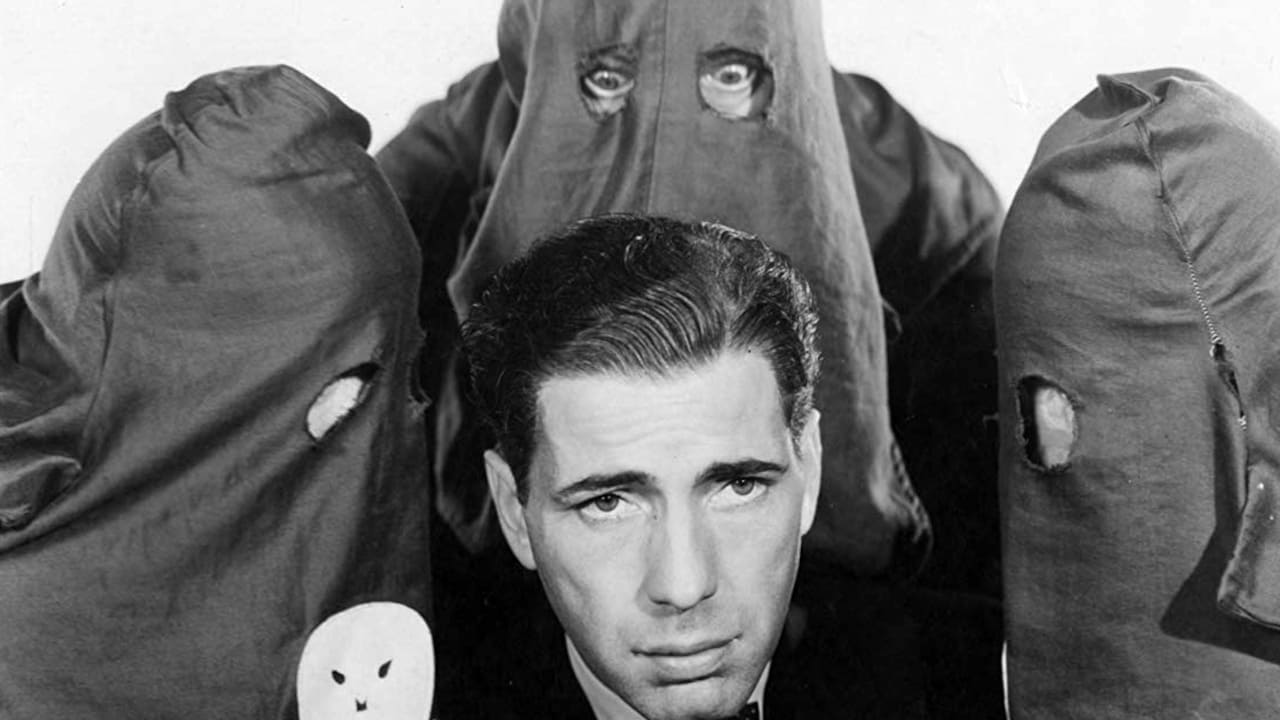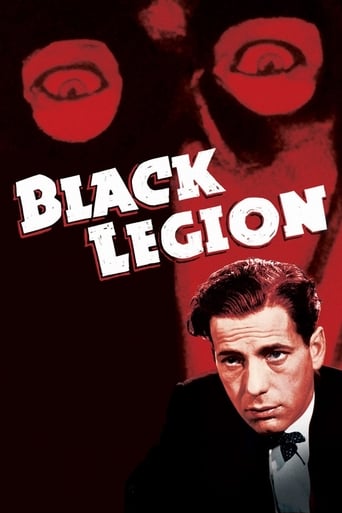

Thanks for the memories!
... View MoreIf the ambition is to provide two hours of instantly forgettable, popcorn-munching escapism, it succeeds.
... View MoreI wanted to like it more than I actually did... But much of the humor totally escaped me and I walked out only mildly impressed.
... View MoreThe movie's neither hopeful in contrived ways, nor hopeless in different contrived ways. Somehow it manages to be wonderful
... View MoreAssuming you are a Bogart fan you will enjoy this unexpected glimpse into his character's deep past. Toothy and gushing, not far from the Bowery Boys (they wear jagged beanies like Jughead), yet he is already a successful family man with the astounding O'Brien-Moore.It is a worker's paradise, yet he gets sucked in to a violent secret society designed to further the good of WASPS like himself. So now at last you see Bogart playing the Fascist! Or the film's interpretation of what Fascism really is. Of course it is not altogether ridiculous but it is really no more than a Boston Blackie action film, typical of the time.It is good though, very entertaining film. You will see images of Bogart which are entirely uncharacteristic.
... View More"Black Legion" was a very unusual role for Humphrey Bogart, but I think he got it because he was not yet an established star and Warner Brothers put him in many different sorts of parts. So, if you are looking for the tough and assertive sort of Bogart, this is NOT the film for you! No, Bogie plays a despicable sort of jerk--and a cowardly one at that.The film begins at a machine shop. It seems that someone is going to be promoted to foreman and Bogart is sure it will be him. However, a Polish-American worker gets the job instead. While this man DID deserve it, Bogie is sullen and angry--and soon jumps at an opportunity to join a local hate club. The Black Legion is sort of like the KKK with its trappings but is more anti-foreigner in focus. So, to get back at the foreman, Bogart sicks his new 'friends' on them and he soon gets the job promotion. Where does all this new power lead him? See this powerful film and find out for yourself.While I wish the film had taken a stronger and clearer stand against the Klan, it is a very powerful film for 1937, as many folks would have supported groups like the Legion. Groups like the American Bund and the popularity of antisemitic celebrities like Charles Lindburgh and Henry Ford (who wrote books espousing hatred of Jews, foreigners and the like) during this time could not be denied. In other words, this film might have alienated many potential viewers and the studio chose to take a deliberate stand for what is right. And, it's a strong film with a very good performance by Bogart in a VERY different sort of role. Well worth seeing--and probably a bit stronger in its message than the studio's "Storm Warning"--another anti-hate group film that was made a dozen years later.
... View MoreOkay, so Bogie is great at everything, but what is he absolutely the best at? Here, we have a story about a group called THE BLACK LEGION, but clearly implied is that it is the KU KLUX KLAN.It is a well written account about how a very ordinary man is swept up into the group. We see hordes of men clinging to the safety of the group. When in the lynch mob, they become different.We see the man's life torn apart, but also the lives of those around him who just want to make their lives, and the lives of others a better place.We are given lots of views of what is taking place in this drama. The drama is full of action, too. It isn't the Macbeth like horror, but the more realistic, every day horror that is depicted, and how it gets out of hand.And that brings us to what Bogie does best. Like the Sierra Madre and other Bogie classics, he is the absolute best at giving us the villain with insecurities, the "realistic" villain, who we see fighting within himself. Much of this is clever writing, also. But it's hard not to think much of it is the genius of Bogart.Obivously a top film, and still as entertaining and interesting today as it was then.
... View MoreBlack Legion (1937) *** (out of 4) Pretty hard-hitting Warner drama about factory worker Frank (Humphrey Bogart) who loses a promotion to a Jewish man so a friend (Joe Sawyer) introduces him to the "Black Legion", a KKK-type group. Soon the men are pushing out those who they don't consider real Americans and Frank begins to lose control of his wife (Erin O'Brien-Moore) and best friend (Dick Foran). There's no question that this film has it's heart in the right place but at the same time you can't help but know the real history of things and have a hard time buying into this "equal" talk here especially when you know very well that things were a lot uglier in this country in terms of race issues. This film pretty much just talks about foreigners and never mentions the fact that groups like this were going after blacks so leaving this out, as if they were important enough to throw into the subject, is a bit misleading and really goes again the message of treating everyone equal. With that in mind, the rest of the film is pretty good and contains some very good performances and some dark situations. I wasn't shocked that a blue-collar studio like Warner would dig deep into the subject matter and try to give an honest look at the events. What did shock me is that the film stayed true to its dark nature and carried it out till the end. This might explain why the movie was banned all across the world but I give the studio credit for not weakening out towards the end. The Oscar-nominated story might leave out certain groups but it works outside of that one issue. I think the movie does a great job at making people understands Frank issues and I think the movie does a great job at making us side for Frank. I'm sure many Americans were feeling frustrated just like this character so the movie lets us feel for him but then it makes sure that people know violence in these types of groups isn't the way to correct things. The movie, except for the very end, never becomes preachy and instead it lets the story do all the talking and we're never constantly beat over the head with any type of message. We get to view the events that happen and I think most people will clearly get what the film is trying to say. Bogart turns in a wonderful performance and I was really surprised at how good he was in this type of role. I'd certainly say this is the best work I've seen from him in these pre-fame years as he really makes for a believable character. I think he really fits into that working class nature and he makes you understand everything Frank is feeling and fearing. Dick Foran is just as good as his best friend who tries to get him to quit the group and O'Brien-Moore and Ann Sheridan add nice support as the wives. Apparently Michael Curtiz stepped in when it came time to director the Black Legion scenes and I believe it as these sequences seem a lot different than everything else. That's certainly not a bad thing as they contain some nice drama and just contain an overall different feel. This is certainly an impressive film but at the same time I wish the "message" would have gone for everyone being effected by groups like this instead of it just limiting itself to those running the studio.
... View More